-
Reasons to Get a Pre-Purchase Inspection
Purchasing a used car is a savvy investment for any driver. Before you place a down payment on a used German auto, however, you may want to bring the vehicle to an auto mechanic in Sacramento for a pre-purchase inspection. During the pre-purchase inspection, your car repair professional will carefully evaluate the performance, safety, and efficiency of all of the vehicle’s vital systems. To emphasize the benefits of having your used car inspected before you buy, here is a brief overview of 3 reasons to schedule a pre-purchase inspection.
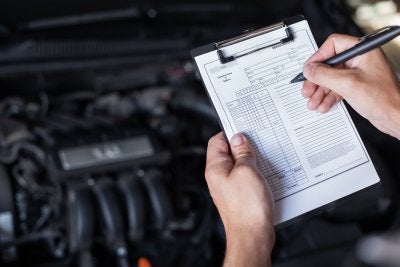
Identify Potential Problems
One of the top reasons to schedule a pre-purchase inspection at Frank’s Automotive for your used vehicle is that the inspection process will allow you to identify any potential problems that may be going wrong underneath the hood. Your mechanic will be able to tell you whether the brakes, coolant lines, or other major systems are going to require major repairs at any time in the near future. If the inspection does not reveal major mechanical problems, you can make your purchase with confidence.
Avoid Buying a Lemon
After you purchase a used car, you will not want to find out about major mechanical issues that were not revealed to you prior to the sale. With a pre-purchase inspection, you can ensure that you are not buying a car that is destined to break down. A qualified mechanic will be familiar with your make and model of car, so he will be able to warn you of any mechanical problems that are common with that type of vehicle.
Receive a Better Price
If the pre-purchase inspection reveals the need for certain mechanical repairs, you may be able to use this information to negotiate a better price for your vehicle. Your mechanic can provide you with an estimate for the cost of repairing the car, and you can relay this information to the seller. Ultimately, your pre-purchase inspection will allow you to get a fair price on a car that is in good mechanical condition.
-
What to Know About Your Car’s Electrical System
Your car is more than a thousand pounds of metal on wheels; it also involves complex automotive electronics in Sacramento to make itself as safe, effective, and convenient as possible. It’s a good idea to familiarize yourself with some of the automotive electrical components that are included in your car; this will also help you identify problems early on. Be sure to talk to your alternator repair specialist for tips on solving electrical problems, and take a look ahead for more on what you should know about your car’s electrical system.
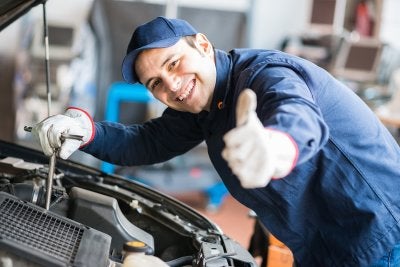
Electrical Components
A vehicle’s electrical system is made up of several components, all of which serve specific purposes and contribute to the overall functioning of your car. In addition to your radio, dashboard camera, and built-in television screens, your automotive electronics consist of systems like the battery, the computer, and the alternator. These components are important when it comes to basic functioning of your car—even getting it started. Your electrical system keeps you and others safe by powering your headlights and your turning signals, while your alternator allows your vehicle to keep moving. Knowing about your automotive electronics and what they do can make you better prepared to notice problems with your electrical system. An important fact about most modern cars, all components from light management to stereo to engine management communicate with each other. With electrical issues, you want to start with the basics.
Common Problems
If you get into your car on a hot day and try to roll your windows down to no avail, there might be a problem with your electronic system. Similarly, having trouble starting your car or issues with your seats and automatic locks can point to automotive electrical problems. You might even notice your headlights dimming or shutting off completely, which can compromise your safety on the road. How you handle these issues can impact the working life of your vehicle and your own wellbeing.
How to Solve Them
It’s always a good idea to talk to a professional when working on your automotive electrical system. You want to make sure your battery and charging systems are in proper functioning order. So it is important to check all systems when looking for electrical gremlins. You might end up doing more harm than good if you try to deal with the problem on your own, so play it safe and see your specialist for professional help.
-
Don’t Ignore Your Check Engine Light
Being in tune with your vehicle means knowing what kinds of problems to look for and what types of signs your car might provide when it’s dealing with an issue. Your check engine light in Sacramento can help alert you to a problem with your car, but it’s your responsibility to talk to your engine repair specialist and get to the bottom of the issue. Check engine lights can indicate a wide array of malfunctions, so you shouldn’t waste any time in looking for a diagnosis. Continue reading to find out why you shouldn’t ignore your check engine light.
The longer you wait to find out what’s making your check engine light illuminate, the more time you will give the problem to develop. Even minor issues can become serious if you don’t address them, but a check engine light could also indicate a significant malfunction. Try looking at your gas cap when you notice your check engine light is on; you might just need to tighten it. If the check engine light stays lit, you could have a problem with your spark plugs, catalytic convertor, or oxygen sensor. Make sure to talk to your mechanic to get these problems sorted out.
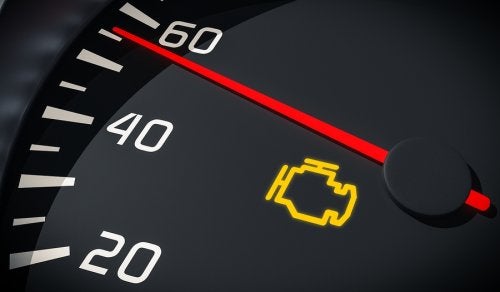
-
Symptoms of an Alternator Problem
If you want your vehicle to last as long as possible, it’s helpful to understand what types of problems you should look out for. When you know what to look for, you can call for alternator repair in Sacramento before the problem gets out of control. You might want to call your automotive electrical specialist about alternator repair if you notice strange noises coming from your car. Other symptoms include electrical issues like dimming lights, and problems when starting your vehicle. Read on for a closer look at some of the symptoms of an alternator problem that you should be aware of as a driver.

Odd Sounds
A loud, strange, or unexpected sound tends to surprise people, as it typically indicates that something is out of order. Just like you would investigate an unidentified sound in the middle of the night, you should keep an ear out for odd noises coming from your car. In some cases, your car might be making this sound because you have a problem with your alternator. Make sure you don’t waste any time in bringing your car in to your specialist for alternator repair so you can keep your bearings in place and your car functioning properly.
Electrical Issues
Problems with your automotive electronics may suggest that you need alternator repair, and they can show up in a few different ways. A failing alternator might leave you with dim or flickering headlights, as the alternator is responsible for providing power. An analogy: A vehicle with a charging system problem is like a child’s toy with weak or dying batteries– it may function but it will start to act weirdly. Lights, Radio, Climate Control & even Engine functions can be compromised. You should also pay attention to your power locks and windows, radio, and other automotive electronics in your car. Your battery could even drain due to a malfunctioning alternator, so seek help as soon as you can.
Trouble Starting the Car
When you get into your car and realize that you had left the interior light on all night, you might not be surprised when your car fails to start. If your car is routinely difficult to start, however, you might be having a real problem with your automotive electronics. Even if your battery is working, a failing alternator might not be able to get the power to your engine. However, a lot of times people confuse the vehicles ability to turn on lights in-dash as the battery being okay. The battery maybe strong enough to turn on lights but too weak to crank vehicle over. There is a difference between “Not Starting” & “Not Cranking Over”. If a vehicle cranks over and does not start, there could be another issue rather than the battery or starter. If your key turns over but engine does not crank over, that could be a charging system or starter issue. This is why we recommend a Car Diagnostic to be able to determine where the issues lies.
-
Is Your Engine Oil Bad?
A vehicle that gets an oil change in Sacramento when needed stands to be more effective and efficient than one that doesn’t, so you should be able to tell when your car is due. Regular oil changes keep your car operating the way it should, meaning you will have fewer problems to deal with over the long term. Watch this video on how to tell if your engine oil is bad.
Determining whether or not you are due for an oil change is not a particularly difficult process, and there are a few ways you can go about it. If you know you haven’t changed your standard oil in 4,000 miles or your synthetic oil in 6,000 miles, it’s probably time for an oil change.
We at Frank’s Automotive recommend splitting your Manufacturer’s recommended oil service interval in half. So if your Manufacturer recommends 15,000 miles before oil service, we recommend oil services every 7,500 miles. For clients who drive their vehicles sparingly and do not put 3,000 to 5,000 miles on their vehicle, the Manufacturer’s recommend once a year. For vehicles that are burning oil or oil looks sludgy, check out our Bluechem product .
-
How to Choose a Technician
After you purchase a luxurious German vehicle, you will want to make sure that you bring your car to a shop that specializes in German auto repairs. By taking the time to find a qualified auto repair shop in Sacramento , you will be able to preserve the performance, efficiency, and safety of your vehicle for many miles to come.
There are several factors to consider when you are choosing a technician. You may want to explore an auto shop’s reviews from other customers in the area. A shop that has great reviews from its customers will be dedicated to providing quality services. When you bring your car to a German automotive repair specialist, you will be able to keep your car in peak running condition.
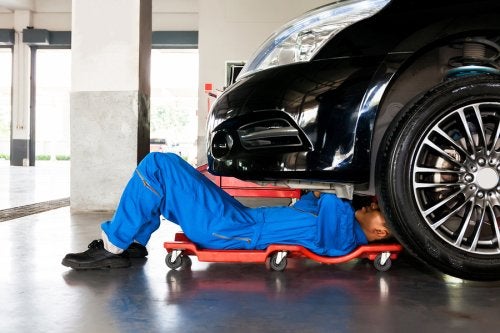
-
The Importance of Regular Oil Changes
Whether you have just purchased a brand new car, or your vehicle is higher in miles, scheduling regular oil changes with your auto technician is one of the most important steps of car care. Without routine oil changes at a certified auto shop in Sacramento, the performance and efficiency of your vehicle will start to decline. A technician that specializes in German auto repair will be able to help you set up the right oil change and maintenance schedule for your vehicle. Let’s take a closer look at some of the top reasons why regular oil changes are so important for your vehicle.
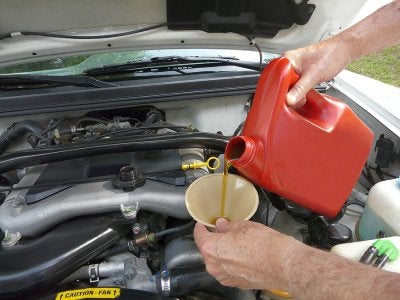
Save Money Over Time
One of the top reasons why oil changes are so important is that these simple maintenance procedures can save you big bucks on repairs in the future. By taking the time to change your oil at regular intervals, you can avoid some of the maintenance problems that are associated with excessive wear and tear on your vehicle. Spending a bit of money on an oil change now will help you avoid costly repairs down the road.
Prevent Engine Damage
Without regular oil changes, your engine could become severely damaged. The moving parts of your car’s engine create a significant amount of friction when your car is in motion. When you schedule oil changes at your auto shop, your technician will swap out your used and dirty oil for a brand new product. With fresh oil, your engine will be able to run smoothly, without a risk of damage.
Boost Fuel Efficiency
Staying on top of your car’s oil change maintenance schedule may also help you boost the fuel efficiency of your vehicle. With regular oil changes, the internal components of your engine will be able to operate more smoothly and efficiently. As a result, your vehicle’s gas mileage ratings will be preserved over time. After learning about the importance of oil changes, be sure to set up an oil change procedure with a licensed technician in your area.
-
A Look at the Components of Brakes
Learning about your car’s internal systems can help you determine when it is time to visit the auto repair shop. Brakes are among the most critical safety systems in any vehicle. When your brakes and rotors start to wear out, your car’s stopping ability could be seriously compromised. By setting up brake service in Sacramento when you start to notice a problem with your braking system, you can prevent further damage to your vehicle. If you are interested in gathering information about how brakes work, read on to learn more about the different components of your car’s brakes.
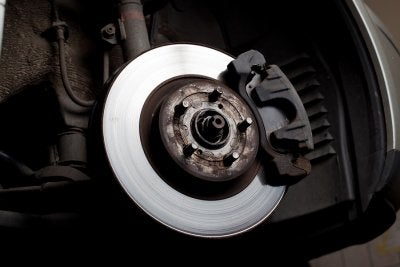
Master Cylinder
The master cylinder is responsible for powering the entire braking system. When the driver places pressure on the brake pedal, this will signal the master cylinder to send hydraulic fluid through the brake lines. The hydraulic power will activate the brakes pistons and cause the vehicle to slow or stop.
Brake Lines
A car’s brake lines are designed to transport brake fluid throughout the braking system. The master cylinder is connected to the other parts of the braking system through a series of brake lines. If the brake lines become damaged, a car may start to leak brake fluid.
Brake Caliper
The brake caliper is designed to house all of the different mechanical components of a braking system. Inside the brake caliper, you will find the brake piston, brake pads, and brake rotors. If a car is experiencing braking problems, the technician may need to disassemble the brake caliper in order to repair the issue.
Brake Pads
A brake pad replacement is one of the most common brake repair services that any car owner will need to schedule. The brake pads are designed to grip the brake rotors, causing the vehicle to slow down or stop. Since the brake pads receive a high degree of friction, they will wear down more quickly than any other brake component.
Brake Rotors
The brake rotors are directly connected to the wheels of a car. As pressure is placed on the brake pads, the brake rotors will stop the rotation of the wheels.
-
Improving Your Car’s Mileage
Improved fuel economy is a top concern for many drivers. When you watch this video from Mobil 1, you will learn some tips and tricks for improving the gas mileage of your vehicle. In order to improve the MPGs of your vehicle, you will want to drive at a consistent and steady speed at all times. Additionally, you can boost fuel efficiency by reducing excess weight from your vehicle. An auto mechanic in Sacramento can provide you with additional information about boosting your car’s fuel economy.
When you visit the auto shop , be sure to ask your auto technician about any tips or tricks that you can use to improve the fuel economy of your car. From performance enhancements to basic automotive maintenance procedures, there are several steps that you can take to achieve the best efficiency out of every drive.
-
Signs That Your Fuel Pump Is Malfunctioning
Your fuel pump provides your car’s engine with gasoline as you are driving down the road. If you have started to notice that your car is sputtering, stalling, or having other difficulties as you drive, you may want to have your auto mechanic take a look at your fuel pump. An auto shop that specializes in German auto repair near Sacramento will be able to replace your car’s failing fuel pump with a top quality part. To help you decide if it is time to visit the mechanic, here are some signs that your fuel pump is malfunctioning.
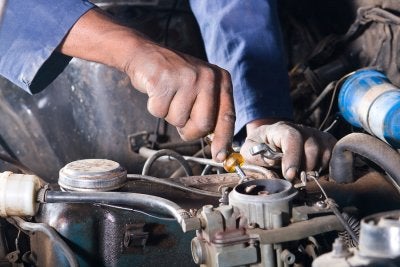
Sputtering Sensations
When your fuel pump is starting to go out, you may start to notice some strange, sputtering sensations as you drive. The sputtering may start at random intervals, and may last for a few seconds or longer. A sputtering engine is particularly worrisome when your car is travelling at faster speeds. As your fuel pump has more and more difficulty delivering fuel to your engine, these sputtering sensations may increase in frequency or duration.
Loss of Power
Another sign of a fuel pump problem in your car is a sudden loss of power while accelerating or driving. When you step on the gas pedal, your car should accelerate smoothly and safely. A fuel pump issue may cause your vehicle to suddenly decelerate, even with your foot on the gas. You may find that your car loses power when you are driving up an incline or under other extreme driving conditions.
Sudden Surging
Along with creating a loss of power in your engine, fuel pump problems can also cause your car to surge suddenly. When your car surges, it may leap forward unexpectedly. A surging vehicle could pose a serious safety threat to you, your passengers, and other drivers on the road. If you are suspicious of a fuel pump problem, or you have noticed surging and other issues, you will want to book immediate mechanical repairs for your vehicle.
RECENT POSTS
categories
- Uncategorized
- Automotive
- automotive diagnostics services
- Frank’s Automotive
- auto shop
- oil change
- Auto mechanic
- Maintenance
- maintenance schedule
- Catalytic Converter
- Engine Light
- oxygen sensor
- Transmission Problems
- BMW
- Pre-Purchase
- Brakes
- Anti-Lock Brakes
- Auto Diagnostics
- Alternator Repair
- Slipping Transmission
- Engine Trouble
- Brake Sounds
- Frank’s Automotive
- Frank Lettini
Archives
2022
2020
2019
2017
2016
- December (4)
- November (5)
- October (4)
- September (4)
- August (4)
- July (4)
- June (4)
- May (4)
- April (4)
- March (4)
- February (4)
